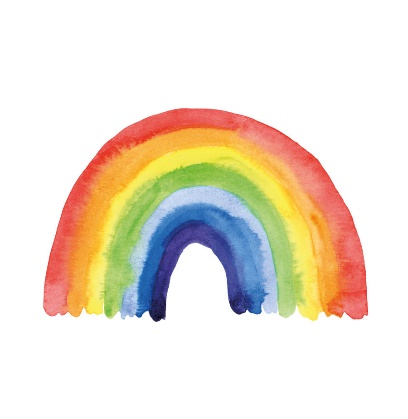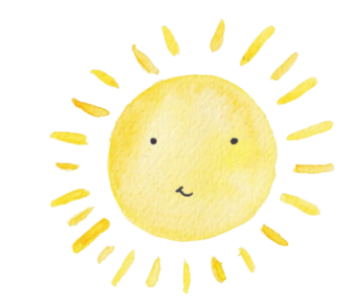EYFS
2024 - 2025
Rainbow Class (St. Peter)
|
Sunshine Class (St. Paul)
|
| Teacher: Miss Manners | Teacher: Miss Gullick |
| Learning Support Assistant: Mrs D'Silva, Mrs Talukder, Mrs Day, Mrs Bryant |
Learning Support Assistant: Miss Rose, Mrs D'Rozario |
Curriculum
PE Days
Wednesday & Thursday
Preparing for EYFS
Letters
Class Noticeboard
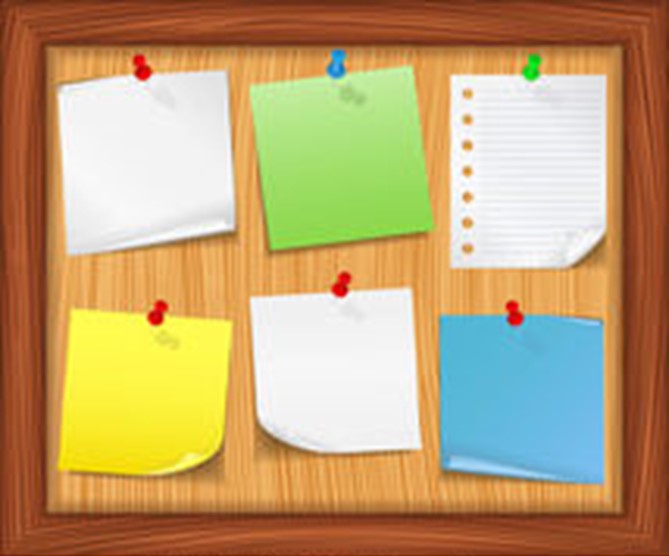
EYFS Intent, Implementation, Impact
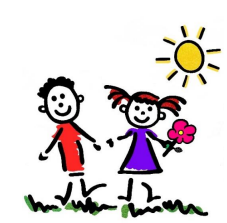
Early Years Foundation Stage
Intent, Implementation and Impact
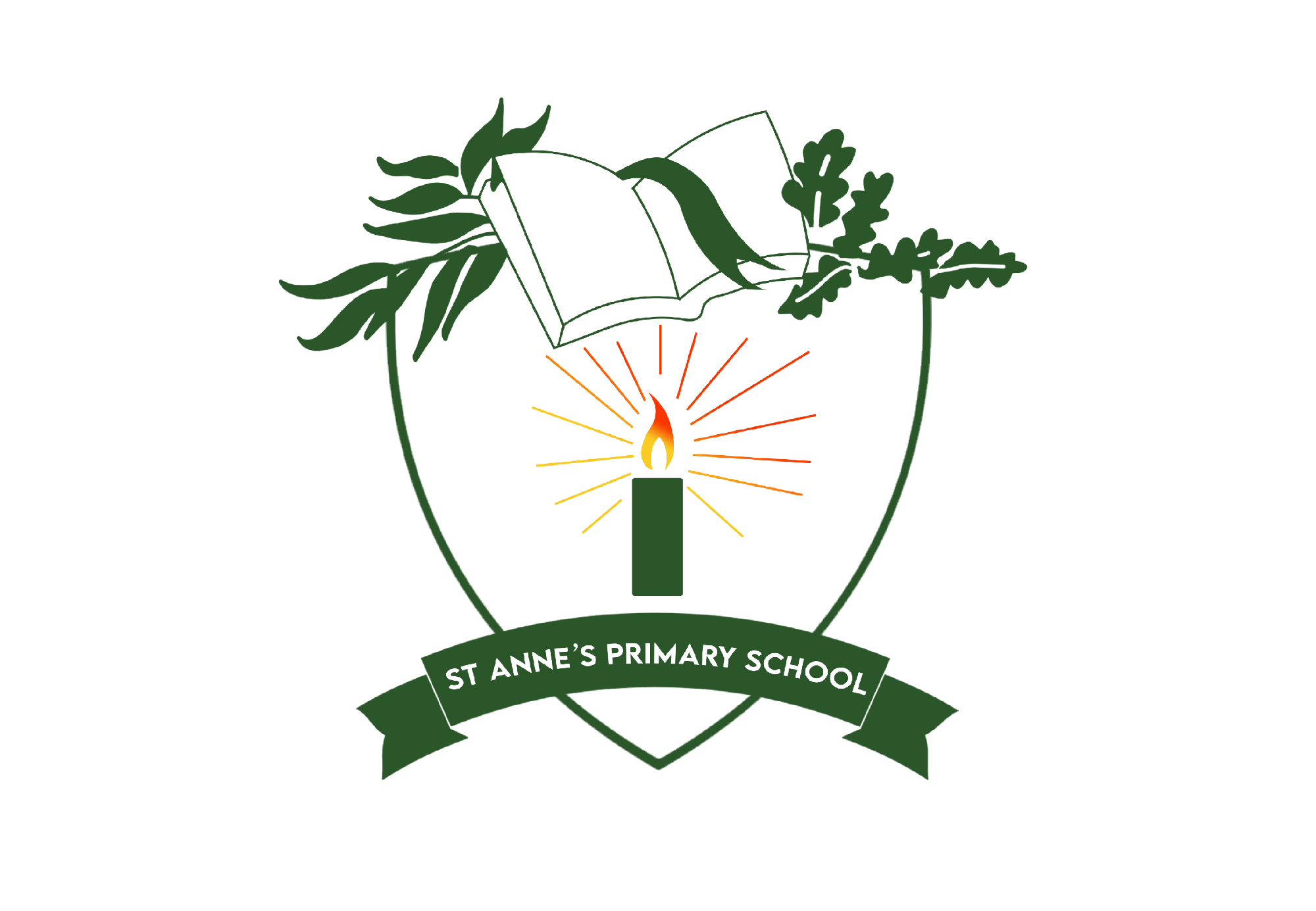
Intent
At St Anne’s Catholic Primary School, our Early Years Curriculum is designed to create a happy, safe and nurturing environment where children can develop their independence, resilience and enthusiasm as learners. We aim to provide an exciting, rich and stimulating environment which educationally challenges children and enables them to become effective, inquisitive, confident and respectful learners.
The Early Years Foundation Stage is the first building block in a child’s education. We believe that every child deserves a valuable and inspiring education, where they can explore, experiment and investigate through practical learning experiences both indoors and outdoors.
We aim to give all children the best start to their education by building strong foundations for their future learning. We recognise that every child is unique, therefore we ensure that all children’s individual needs are met through careful planning and assessment and early intervention or additional support is introduced if required.
We believe that these aims can only be achieved with the support and understanding of parents and carers. Close relationships with parents and guardians are essential in providing the upmost support for a child.
In Early Years and across the school, our aim is to ensure that every child feels happy, loved, respected and valued, in line with our whole school mission statement:
“With Christ at the centre of our lives, we live out our call to serve the young.
It is not enough to love children, they must know that they are loved.”
St John Bosco
Implementation
The Early Years intent is built upon the following principles:
- Every child is a unique child, who is constantly learning and can be resilient, confident, capable and self-assured.
- Children learn to be strong and independent through positive relationships
- Children learn and develop well in enabling environments, in which their experiences respond to their individual needs and there is a strong partnership between practitioners and parents and/or carers and the child.
- Children develop and learn in different ways.
Our Curriculum is devised to develop the Characteristics of Effective Learning:
- Creating and thinking critically – children have and develop their own ideas, make links between ideas, and develop strategies for doing things.
- Active learning – children keep on trying if they encounter difficulties, and enjoy their achievements.
- Playing and exploring – children investigate and experience things, and ‘have a go’.
The Early Years Foundation Stage includes 7 areas of learning that all share equal importance:
- Communication and Language
- Physical Development
- Personal, Social and Emotional Development
- Literacy
- Mathematics
- Understanding the World
- Expressive Arts and Design
Communication and language development involves giving children opportunities to experience a rich language environment; to develop their confidence and skills in expressing themselves; and to speak and listen in a range of situations. A significant percentage of the children in our setting have English as an additional language and can often arrive with very little English language skills. As a result, within Reception, the planned learning opportunities develop a pupils’ ability to communicate effectively and interact positively.
Physical development involves providing opportunities for young children to be active and interactive; and to develop their coordination, control, and movement. Children must also be helped to understand the importance of physical activity, and to make healthy choices in relation to food and exercise.
Personal, social and emotional development involves helping children to develop a positive sense of themselves, and others; to form positive relationships and develop respect for others; to develop social skills and learn how to manage their feelings; to understand appropriate behaviour in groups; and to have confidence in their own abilities.
Literacy involves encouraging children to link sounds and letters and to begin to read and write. This is taught through the Rocket Phonics Systematic Synthetic Phonics Programme. Children are given access to a wide range of reading materials (books, poems, and other written materials) to ignite their interest.
Mathematics involves providing children with opportunities to develop and improve their skills in counting, understanding and using numbers, calculating simple addition and subtraction problems; and to describe shapes, spaces, and measure. This is taught through BBC Numberblocks and the NCETM Mastering Number scheme of learning.
Understanding the world involves guiding children to make sense of their physical world and their community through opportunities to explore, observe and find out about people, places, technology and the environment.
Expressive arts and design involves enabling children to explore and play with a wide range of media and materials, as well as providing opportunities and encouragement for sharing their thoughts, ideas and feelings through a variety of activities in art, music, movement, dance, role-play, and design and technology.
Our EYFS curriculum motivates and engages all children and ensures that each child makes good progress from their starting point. A number of key resources are used to support the development of the curriculum including Development Matters, Birth2Five, Mastering Number (NCETM), Rocket Phonics, Religious Education ‘Journey in Love’ and the Connect PSHE programme.
We understand that play is an integral part of learning. We believe that the skilful mix of purposeful play, adult supported activities and direct teaching supports the best outcomes for all. Where possible we use the children’s own interests as hooks for new learning and/or to deepen their learning.
Our provision has been designed to offer high quality engagement in learning for every child delivered through supportive adult interactions, directing teaching, purposeful play, challenging but age-appropriate resources. We are fortunate to be able to deliver our provision in a stimulating environment which excites and motivates all children both inside and outside. The children have the right to the outdoor environment all the year round and access to the area is available daily throughout the session with constant adult supervision and interaction.
Impact
Through careful assessments and observations, including information provided by parents and other settings, children’s development levels are consistently tracked by:
- Baseline assessment
- Statutory baseline assessment in the first half-term of Reception
- Consistent observations and careful questioning.
- Effective planning is informed by observations of the children to ensure we follow their current interests and experiences. These observations are recorded on to Tapestry Online Learning Journal.
- Constant communication and questioning with the children
- Rocket Phonic knowledge assessments
- Data collection, which informs our planning and interventions.
- Summative assessment in the final term directly related to Early Years Foundation Stage Profile
- Two parent evenings to discuss each child’s progress and development
- Six monthly Individual Report to parents on their child’s attainment and progress.
During the final term in Reception, the EYFS Profile is completed for each child. The Profile provides a well-rounded picture of a child’s knowledge, understanding and abilities, their progress against expected levels, and their readiness for Year 1.
EYFS Newsletter

